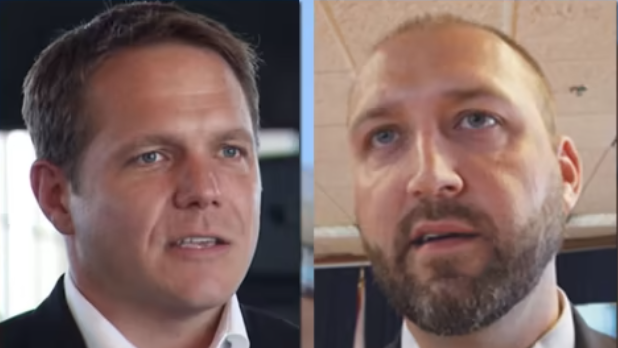One of two juries reached a verdict Thursday in the federal trial of former JEA executives accused of conspiracy and fraud.
The jury for former CEO Aaron Zahn reached a verdict about 5:25 p.m. after 7½ hours of deliberations. The verdict will remain sealed until the jury for former Chief Financial Officer Ryan Wannemacher returns with its verdict.
Both juries were released for the day, so no verdict was announced Thursday.
Wannemacher’s jury will return to court Friday to deliberate. Once jurors reach a verdict, both verdicts will be read.
The former executives of the city-owned utility are charged with conspiracy and wire fraud in connection with an alleged scheme that would have resulted in their making millions in bonuses if JEA was sold.
There are two juries in the case, and they were separately given instructions from the judge before deliberations began. The Zahn jury began its deliberations around 9:45 a.m., and the Wannemacher jury began its discussions about an hour later.
After hours of deliberations, both juries returned with questions for the judge. Zahn’s jury asked a question about needing unanimous agreement on the sections under “Manner and Means” in the indictment in order to find him guilty.
The judge and lawyers discussed the question. The judge took a brief recess to decide how he wanted to handle it, then brought the jury in and told them they must follow all instructions as a whole, not single out or disregard any instructions.
Then the judge reread part of the jury’s instructions on the conspiracy charge.
Closing arguments in the case wrapped up Wednesday.
Prosecutors said Zahn schemed to push for the sale and the controversial bonus plan and tried to paint a picture that JEA was struggling. They said Wannemacher helped create the plan and went along with it even though he knew it was problematic.
Zahn’s attorney rebuted that. He addressed both juries in closing arguments.
He said there wasn’t any evidence that showed communication between Zahn and Wannemacher, meaning no paper trail, emails, phone records or texts.
Jurors need to figure out what JEA executives knew or did not know when voting on the performance unit plan, a bonus plan that could have resulted in more than $345 million in payouts to JEA leaders if the utility were sold. Multiple people testified in the trial that this kind of bonus plan was unprecedented for government entities.
Wannemacher’s attorney addressed only the jurors hearing Wannemacher’s case. He argued that the case comes down to what his client was thinking during the key 2019 board meeting when the plan was approved by board members who testified they had no idea about the potential for huge bonus payouts.
Wannemacher’s attorney said his client was acting in good faith and being honest and argued the jury never heard any evidence that Wannemacher lied or formed a strategic plan.
There could be different verdicts reached in the trial.
If Zahn and Wannemacher are convicted on all counts, they can each face up to 25 years in prison.








